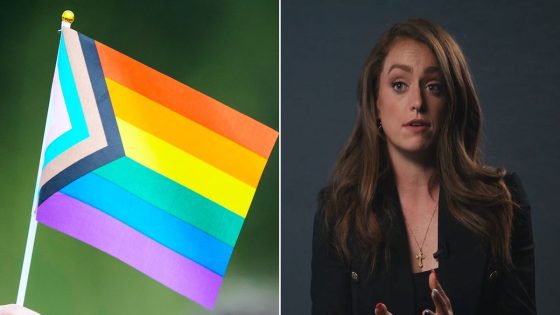Harvey Weinstein‘s 2020 rape conviction has been overturned by the New York Court of Appeals.
On Thursday, the court found in a 4-3 ruling that the judge in Weinstein’s trial — a landmark moment in the #MeToo movement that the 2017 allegations against him started — had shown prejudice by allowing women to testify about allegations that were not part of the case. The court has now ordered a new trial.
Weinstein, the Oscar-winning producer of “Shakespeare in Love” and “Good Will Hunting,” is serving a 23-year sentence at the Mohawk Correctional Facility, a medium-security prison in Rome, N.Y. He will remain imprisoned as he was also convicted of rape in Los Angeles in 2022 and sentenced to an additional 16 years in prison. However, Weinstein was acquitted in the Los Angeles trial on charges involving a woman who testified in his New York case.
“We reaffirm that no person accused of illegality may be judged on proof of uncharged crimes that serve only to establish the accused’s propensity for criminal behavior,” wrote Judge Jenny Rivera in the court’s majority opinion. “It is an abuse of judicial discretion to permit untested allegations of nothing more than bad behavior that destroys a defendant’s character but sheds no light on their credibility as related to the criminal charges lodged against them.”
In the New York case, Weinstein was convicted of sexually assaulting Miriam Haley, a former production assistant on “Project Runway,” at his apartment in 2006. He was also convicted of raping Jessica Mann at a hotel in 2013.
Weinstein’s attorneys, led by Arthur Aidala, appealed the conviction on numerous grounds. A lower appellate court denied the appeal in 2022, but the state’s highest court agreed to hear the case.
“Today’s decision is a major step back in holding those accountable for acts of sexual violence,” said Douglas Wigdor, an attorney who represented two pre-trial witnesses in New York. “Courts routinely admit evidence of other uncharged acts where they assist juries in understanding issues concerning the modus operandi or scheme of the defendant. The jury was instructed on the relevance of this testimony and overturning the verdict is tragic in that it will require the victims to endure yet another trial.”
Judge Madeline Singas wrote in the court’s dissenting opinion, “With today’s decision, this Court continues to thwart the steady gains survivors of sexual violence have fought for in our criminal justice system. Forgotten are the women who bear the psychological trauma of sexual violence and the scars of testifying again, and again. This erosion of precedent, born from a refusal to accept that crimes of sexual violence are far more nuanced and complex than other crimes, comes at the expense and safety of women.”
At oral argument in February, Aidala maintained that Justice James Burke had stacked the deck against Weinstein by allowing three women — Dawn Dunning, Tarale Wulff and Lauren Young — to testify against him.
Each of the women told the jury that Weinstein had sexually assaulted them after they showed up for what they thought would be a business meeting. The so-called “Molineux” witnesses were called to show that Weinstein’s assaults had a common pattern, and that he was not confused about whether or not the victims consented.
Weinstein’s defense argued that the effect of the testimony, however, was to attack his character without shedding any light on the allegations for which he was actually charged.
“This is major prejudice,” Aidala argued in February. “It’s saying, ‘He’s a bad guy. He’s a bad guy. He’s a bad guy.’”
The defense also challenged the judge’s ruling allowing prosecutors to attack Weinstein’s credibility if he had taken the stand. Before the trial, Burke said he would allow prosecutors to raise as many as 28 separate incidents of alleged misconduct, including bullying and threats of violence. Weinstein did not testify, and the defense argued that the judge’s ruling effectively foreclosed his ability to effectively defend himself.
The issue of “prior bad acts” testimony was also raised in Bill Cosby’s successful appeal of his sexual assault conviction in Pennsylvania. In that case, five women were allowed to testify to buttress the one allegation that was charged. The Pennsylvania Supreme Court overturned that conviction on different grounds, finding that prosecutors had reneged on a promise not to prosecute Cosby.
Source Agencies


